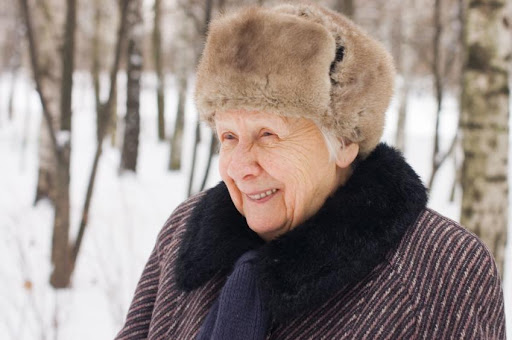
Cold Weather Safety Tips for Seniors
As temperatures drop and winter approaches, keep in mind the safety of our older loved ones. Seniors are especially vulnerable to the dangers of cold weather and extreme temperature changes due to age-related health conditions. And without proper precaution, they may not be able to handle the colder temperatures.
To help protect your senior family member, here are some tips for staying safe during cold weather.
Dress for the Weather
Many seniors may not be able to feel their extremities as well as they used to, which can be a problem when the temperature drops. Make sure your senior family member dresses appropriately for the weather before they leave the house. A few warm layers are better than one big heavy coat since they can take off or add layers as needed throughout the day. It’s also a good idea for them to have a hat, gloves, and scarf handy in case it gets colder than expected outside.
If your senior loved one doesn’t have appropriate winter clothing, it might be time to invest in some cold-weather gear. Look for jackets and pants made with warm materials like wool or down-filled jackets.
Watch out for Drops in Temperature
Seniors need to stay aware of extreme temperature changes that often occur outdoors during winter months. Going from a heated home or car into frigid temperatures can cause issues, including chest congestion and shortness of breath. Plus, staying aware of what’s happening outside can help seniors prepare for slick roads, icy sidewalks, and more.
Check that your senior family member is aware of the temperature fluctuations before they head out the door. They must also be mindful of the symptoms of hypothermia (shivering, slurred speech, confusion, etc.) and frostbite (tingling, numbness in extremities).
Stay Hydrated
Staying hydrated is important at any age, especially in cold weather when people don’t think about drinking water as much. Dehydration can lead to dizziness, confusion, fatigue, headaches, and other health problems in seniors, so check that your elderly relative is getting enough fluids while out in cold weather.
Water is best when it comes to cold weather hydration, but warm beverages like hot chocolate can also help seniors stay warm while they’re out and about. However, avoid caffeinated drinks as they can dehydrate the body further.
Inspect Heating Systems
Check that your elderly family member’s home is adequately heated during winter. First, inspect their heating system to ensure it runs safely and efficiently. It’s also essential to check for carbon monoxide leaks or other potential safety issues with their furnace, boiler, or other heating systems.
If they have a fireplace, have it serviced to guarantee it’s safe and running correctly. Also, be vigilant about proper fire safety to avoid potential hazards.
Seal All Air Leaks
Check the windows and doors of your elderly relative’s home for any leaks that could let cold air in or out. Seal any cracks or gaps around windows and doors to help keep the temperature inside their home comfortable. Leaks not only cause a drafty feeling in the house but can also increase your senior’s heating bills.
Ideally, you’ll want to insulate any gaps around windows and doors with weather stripping or foam insulation. If your elderly family member has older, single-paned windows, invest in plastic window film to keep heat inside.
Regularly Check In
Frequently check in with your elderly relative during cold weather months. Ask how they are feeling and if they are staying warm, hydrated, and safe while out in the cold. Without regular contact, minor health issues can go undetected, which can lead to more severe problems down the line. For seniors in poor health, these small changes make them more susceptible to the dangers of cold weather.
Checking in on a regular basis also gives you an opportunity to remind them about the importance of wearing the proper cold-weather clothing, staying aware of temperature changes, and drinking plenty of fluids. Without someone to remind them, seniors can easily forget these vital health and safety tips.
Conclusion
Cold winter months aren’t without danger for seniors, but there are steps you can take to ensure your elderly family member stays safe. By following these safety tips, you can protect them against the risks associated with cold weather conditions, such as dehydration, hypothermia, and changes in temperature.
Confirming that they are appropriately dressed for the weather, staying informed about any potential health risks of extreme temperature changes, and checking in with them regularly can make all the difference this winter season.
At Visiting Angels Chadds Ford, our caregivers know how to provide a warm and secure environment for seniors during the cold weather months. They also offer home care services, including transportation, meal preparation, medication reminders, and companionship to help keep your elderly relatives safe and healthy. Contact us today at 484-770-8479 to learn more about how we can help your senior loved one this winter.
